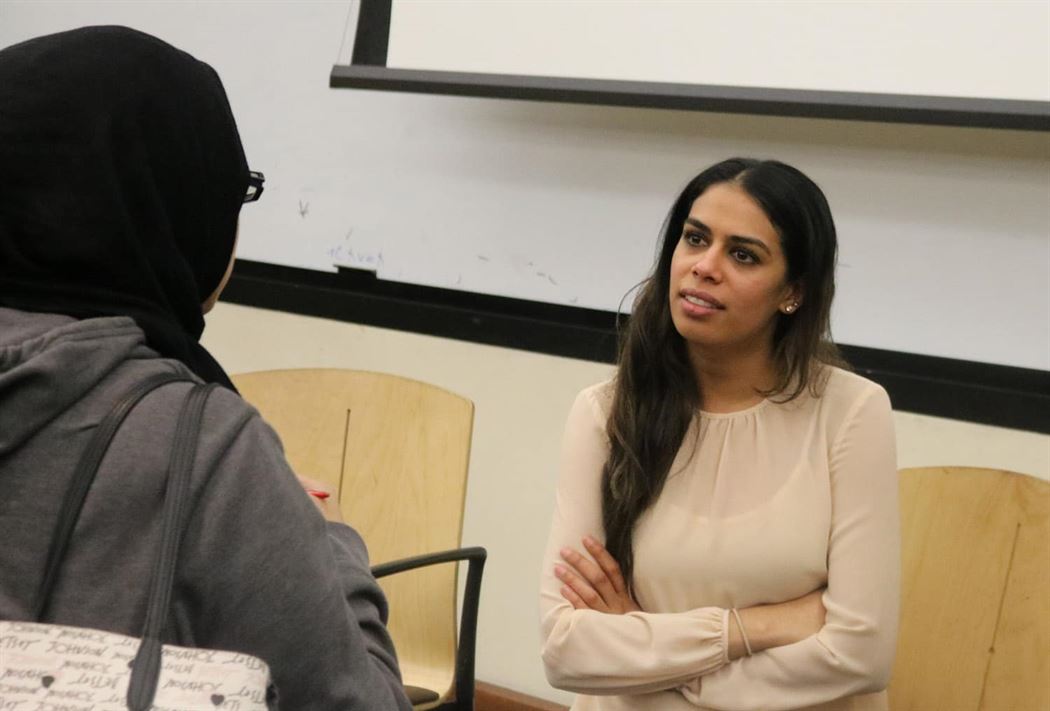A crowd of students gathered at University Hall to listen to guest speaker Sarah Gonzalez discuss her series of stories about the American Juvenile Justice System, which largely differs from the German system.
Gonzalez, an award-winning reporter at WNYC and New Jersey Public Radio (NJPR) revealed that the “contrast is crazy” between the two systems. In Germany where the average age is 24, the justice system allows the prisoners to have jobs in prison and get paid the minimum wage while serving their sentences. A percentage of their salary “goes into a fund for when they get out,” explained Gonzalez.
Another interesting fact brought up by Gonzalez, to the surprise of the audience, was that prisoners get assistance to find apartments after their release.
The environment is also different from the U.S., as male and female prisoners are jailed at the same facilities and interact with each other. Gonzalez shared that inmates are allowed to date and hold hands, but can’t have intimate relations with each other.
The assistance that inmates get in Germany seems nonexistent in the U.S, as most former inmates have problems getting reinstated into society. A former inmate featured in the series went through hardships trying to keep a job—he would get fired from most of them.
Racial disparity in the U.S. juvenile justice system is another topic she touches on in her stories. Records show that in the past five years, 692 juveniles have been tried as adults in the state of New Jersey. Ninety percent of these juveniles were African-American or Latino.
In one of the four parts in her series of stories, Gonzalez also discusses how correctional officers are trained.
“It takes 16 weeks to become a correctional officer in New Jersey and it takes two years to become [one] in Germany,” said Gonzalez.
She went into detail about how the training in the U.S. is way more intense with guards putting on gloves to “actually fight each other.” In Germany, guards don’t carry handcuffs or any weapons.
Gonzalez became interested in writing the stories after someone told her about juveniles in the U.S. being tried as adults. In New York, anyone over the age of 15 is tried as an adult and in New Jersey, it is up to the prosecutor in the county to make the decision.
Students had a few questions for the guest. One of them was why the German justice system seemed to be very lenient. Gonzalez had that same question for the prison director at the German prison where she spent a week for her investigative reporting.
She responded, “He said [that] in the German Constitution, they [consider] human dignity invaluable.”




